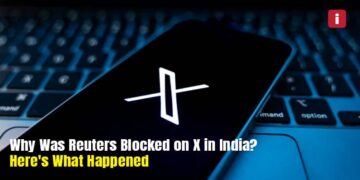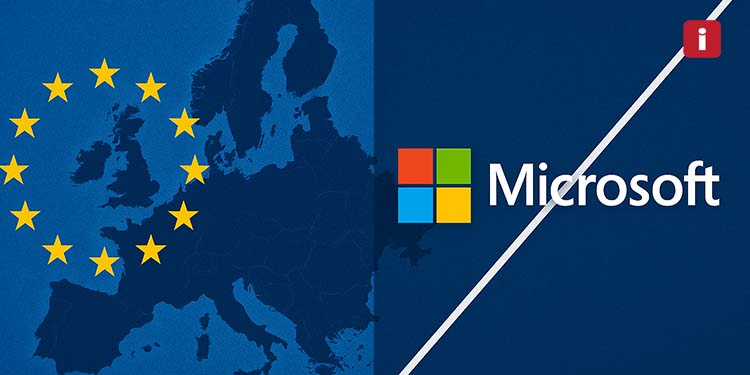The great digital divorce | Why digital sovereignty in Europe means collapse with us technology
In the complex visual tissue in the digital landscape of the 21th century, the software of giants such as Microsoft has been deeply embedded in the operation of governments, businesses and educational institutions worldwide. Nevertheless, throughout Europe, a significant and rapid movement gain speed: a strategic roof from US-based technology. This is not just a change in procurement; It is an intensive discovery for digital sovereignty, which is inspired by the immediate need to recognize data control, increase national security and cultivate real digital freedom.
This seismic change is carried out by a basic friction between strong GDPR (general data security regulation) of the EU and specific US laws, as well as with increasing geopolitical awareness of technical dependence. The very bedding of the translant digital trust is reassessed, leading to the redeveloping concrete functions of the global technical market.
The Clash of Titans | GDPR vs Cloud Act
The European digital revolution has an underlying battle between the EU’s privacy and the EU’s obligation to the US law, especially the US Cloud Act. Implemented in 2018, the Cloud ACT provides US law enforcement to the authority to demand data from US-based cloud service providers, although this data is stored on servers outside the United States. For European governments, it creates an unacceptable risk: sensitive civil information, important government communication and even national security data may be potentially available by US authorities without their knowledge or consent.
It collides with GDPR, Europe’s gold standard for direct data protection. GDPR implements strict requirements to process, store and move the personal information to the EU citizens. This makes high level of security mandatory, and data transfers are only acceptable under specific conditions that ensure the “essential equivalent” level of security. The decision on “Schrems II” from 2020 from the European Court of Justice strengthened this attitude, invalided the EU’s privacy framework and underlined the lack of the existing mechanisms to protect the EU data. The decision was a major wake -up call for digital sovereignty, and forced European institutions to seriously reconsider their dependence on US cloud suppliers.
Germany’s bold trend | Shleswig-Holstein’s leading ban
The German state is Schleswig-Holstein and leads the accusation of this European Microsoft Office BAN movement. In a historical decision, the state phases all Microsoft software -including the almighty office suits, teams and Windows operating systems from their government departments. In September 2025, around 30,000 public employees, police officers and judges would have been completely infected in Open Source options. Another 30,000 teachers are expected to follow the coming years.
“We have it with teams,” said the Digitization Minister to Dirk Shroder, Shleswig-Holstein unevenly! He emphasizes the state’s willingness to prevent “withdrawal of control” of his digital operations and to prevent dependence on US companies for significant digital infrastructure. Solid steps include:
- LibreOffice replaces Microsoft Word and Excel.
- To take Open-Exchange to Outlook for email and calendar.
- A planned transition from Windows to Linux operating system.
It is important that all state data storage will be transported from the Microsoft server to German-IID cloud infrastructure, and guarantees that sensitive information remains within national borders and below the national legal jurisdiction. This bold step is not just about privacy and data security, but also about financial judgment. Officers estimate significant savings for a long time by avoiding Microsoft license fee and unexpected upgrade costs, highlighting the cost benefits of open source. Geophysical events, especially in Ukraine, have increased more concern to strengthen the decision to build a self -reliant digital system.
Many German states had already banned Microsoft Office 365 from schools due to problems with GDPR Sami -response, especially with reference to concern for the collection and processing of individual data from minors.
A pan-European shift | from schools to sovereign clouds
Digital sovereignty is a comprehensive event of Europe, a broad phenomenon, leading to Germany’s borders and includes different regions:
France: The French National Ministry of Education has highly recommended the use of Microsoft Office 365 and free versions of Google Workspace at schools. It is consistent with France’s “Sky in the center” policy and reflects concern for GDPR contamination and Skylov. The French government actively promotes sovereign cloud solutions that ensure data and security in the EU, and advocates European developed technology.
Denmark: Danish Data Protection Agency, the Datting view, has banned Google Workspaces and Chromebooks in schools in many municipalities, including Helsingør. The main question is still the inability to fulfill Google’s GDPR requirements fully, especially related to the transfer of student data in the United States without sufficient security measures.
EU initiative: The EU itself drives this change with a strategic structure to create digital freedom. Initiatives such as Eurostac that create a Homegron European Cloud Infrastructure, promotes interopable clouds, AI and computer management frameworks. This is a direct response to fragmentation of non-European supplier and more addiction. The Interopble Europe Act, which came into force in 2024, actively promotes the adoption of open source software in the block, and recognizes its ability to transparency, safety and cost-effectiveness. European technical sovereignty, the appointment of a Vice President of Margarethe Westagers, leads to the strategic importance of this agenda.
Open source promise and loss
Axis against Open Source options such as Libraofis and Linux are an integral part of Europe’s digital sovereignty strategy. Open Source provides specific benefits for software:
Openness and revision: The open nature of the code allows for independent safety audit, and ensures no hidden weaknesses or back doors. This promotes more self -confidence, which is an important element for sensitive government operations.
Cost efficiency: While early migration and exercise can increase costs, the absence of recurrent license fees for proprietary software can lead to significant long financial savings for public administration.
Adaptation and flexibility | Governments achieve freedom to change and advertise
A new digital order covering
Europe’s persecution of digital sovereignty is higher than just a technical change; This is a powerful geopolitical statement. It reflects increasing determination to protect its democratic values, economic interests and fundamental rights for the basic rights of citizens and to protect fundamental rights in the weak digital world. Microsoft’s own office with Office 365 and Microsoft 365 Suites emphasize concern about the ongoing EU investigative market and fair competition.
While US tech giants like Microsoft react with the initiative with initiatives such as new European security programs and European sovereign clouds of AWS (designed to meet the needs of strict data stays and operational autonomy), the underlying voltage persists. Europe is no longer material to be a consumer of foreign technology. It wants to be a builder, an innovator and an sovereign control of his own digital fate.
“Great Digital Divorce” can be a gradual process, but there is an undisputed tendency that actively shapes the global technology landscape. As the European nation continues to prefer data control and digital freedom, in the coming years there will be a witness to a continuous change from the US proprietary software, which will promote a more diverse, transparent and sovereign digital future for the continent. This development will not only affect the technical industry, but will also redefine the very essence of national security and economic autonomy in the digital age.
Ready to dive deep into digital sovereignty?
The implications of Europe’s pressure for digital sovereignty move far beyond government offices. For companies working in or in Europe, it is important to understand this scenario for compliance, risk management and strategic plan.
Join our upcoming Insight Tech Talk: “Navigation of Europe’s digital sovereignty input”
We will break the latest regulatory changes, discover practical data control strategies and discuss the future of participation in cross -border technology. Don’t miss this opportunity to obtain actionable insights for your organization.
Register for the Insight Tech Talk Now!













































